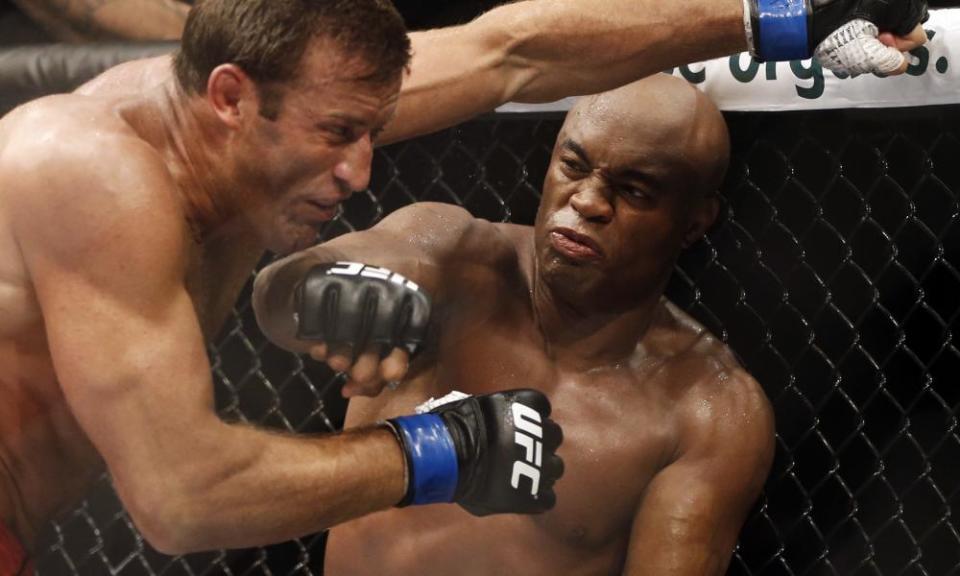Anderson Silva pulled from UFC's first China card after another failed drug test

Anderson Silva’s career is in jeopardy after the former UFC middleweight champion failed a Usada out-of-competition drug test, prompting a provisional suspension and removal from the organization’s first ever card in mainland China later this month.
Silva, 42, had been scheduled to meet Kelvin Gastelum in the main event of UFC Fight Night 122 at Shanghai’s Mercedes-Benz Arena, but an out-of-competition sample collected on 26 October was flagged for a banned substance, the UFC announced Friday. The promotion did not indicate in a brief statement the substance in question.
While Silva is considered innocent pending the testing of his B sample, the UFC said the proximity of the show means he’s been removed immediately and they will be seeking a replacement opponent for Gastelum.
A confirmed positive test would mark Silva’s first violation since the UFC enlisted Usada as the independent administrator of the promotion’s anti-doping policy, but the Brazilian also failed an in-competition drug test for the steroids drostanolone and androsterone stemming from his fight with Nick Diaz at UFC 183 in January 2015, which marked his first fight back after suffering a gruesome leg injury in 2013.
That earned him a one-year suspension and $380,000 fine from the Nevada Athletic Commission despite his insistence that he’d never knowingly taken performance-enhancing drugs, instead blaming the positive test on a tainted male-enhancement product from Thailand.
Silva held the UFC middleweight championship from 2006 through 2013, the longest title reign in the promotion’s 24-year history, which included runs of 16 consecutive wins and 10 straight title defenses. He’s widely regarded as one of the greatest mixed martial artists of all time, if not the greatest.
But he’s won just once in the last five years – a points win over Derek Brunson in February – and would face a minimum two-year ban under the UFC’s anti-doping policy if Usada chooses to treat him as a second-time offender, effectively ending his career.

 Yahoo Sport
Yahoo Sport 





































